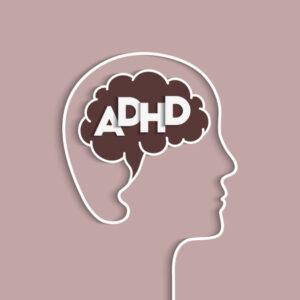Attention Deficit Hyperactivity Disorder (ADHD) is a neurodevelopmental disorder that affects millions of individuals worldwide. Characterized by symptoms such as inattention, hyperactivity, and impulsivity, ADHD can have a significant impact on various aspects of daily life, including memory. Many people with ADHD struggle with memory issues, which can affect their academic performance, work efficiency, and personal relationships. However, understanding how ADHD impacts memory and employing effective strategies can help improve recall and overall functioning.
Understanding ADHD and Memory Challenges
ADHD affects memory in multiple ways. One of the primary issues is related to working memory, which is the ability to hold and manipulate information over short periods. Working memory is crucial for tasks such as following multi-step instructions, problem-solving, and planning. Individuals with ADHD often find it challenging to keep information active in their minds long enough to use it effectively, leading to difficulties in recalling details and completing tasks.
Additionally, ADHD can impact long-term memory, which involves the storage and retrieval of information over extended periods. Individuals with ADHD may struggle with organizing and consolidating information into long-term memory, making it harder to recall facts, experiences, and learned skills. This can result in frequent forgetfulness, missed deadlines, and difficulties in retaining new information.
Strategies to Improve Memory in ADHD
Despite these challenges, there are several strategies and techniques that can help individuals with ADHD improve their memory recall and overall cognitive functioning. Here are some evidence-based approaches:
Use External Aids
External aids such as planners, to-do lists, and reminders can be highly effective for managing memory challenges in ADHD. Digital tools like calendar apps, reminder apps, and voice-activated assistants can help individuals keep track of important tasks and deadlines. Setting alarms and notifications for tasks and appointments can also serve as prompts, reducing the likelihood of forgetting.
Implement Structured Routines
Establishing structured routines can help individuals with ADHD manage their memory more effectively. Creating consistent daily routines and organizing tasks into specific time slots can reduce cognitive load and help reinforce memory through repetition. For example, setting a regular time each day to review important information or complete specific tasks can improve recall over time.
Utilize Visual and Auditory Cues
Visual and auditory cues can be powerful tools for enhancing memory in individuals with ADHD. Using color-coded notes, charts, and diagrams can help make information more memorable and easier to retrieve. Similarly, recording verbal notes or using mnemonic devices can aid in remembering important details. Associating information with visual images or auditory signals can strengthen memory connections.
Practice Active Engagement
Engaging actively with the material or task at hand can improve memory recall. Techniques such as summarizing information in one’s own words, teaching the material to someone else, or creating mind maps can enhance understanding and retention. Active engagement helps to encode information more deeply into long-term memory, making it easier to retrieve later.
Break Tasks into Smaller Steps
Breaking tasks into smaller, manageable steps can help alleviate the cognitive overload that often accompanies ADHD. By focusing on one step at a time, individuals can reduce the likelihood of forgetting important details and maintain better control over their progress. Using checklists and step-by-step guides can provide a clear structure and improve overall task management.
Prioritize Sleep and Self-Care
Adequate sleep and self-care are essential for cognitive functioning and memory. Sleep deprivation can exacerbate memory problems and impair attention, making it harder to recall information. Prioritizing good sleep hygiene, regular exercise, and a balanced diet can support overall brain health and improve memory performance.
Seek Professional Support
Working with a mental health professional or ADHD coach can provide personalized strategies and support for managing memory challenges. Cognitive-behavioral therapy (CBT) and other therapeutic approaches can help individuals develop coping strategies, improve organizational skills, and address specific memory issues related to ADHD.
Use Memory Techniques
Memory techniques such as chunking, visualization, and association can be beneficial for individuals with ADHD. Chunking involves breaking down information into smaller, more manageable units. Visualization involves creating mental images of the information to enhance recall. Association involves linking new information to something already known to make it more memorable.
Conclusion
ADHD can present significant challenges to memory and recall, but with the right strategies and support, individuals can improve their cognitive functioning and manage their symptoms more effectively. By using external aids, establishing structured routines, and engaging actively with information, individuals with ADHD can enhance their memory performance and lead more successful and fulfilling lives. Additionally, seeking professional support and prioritizing self-care can further support memory improvement and overall well-being. With perseverance and the right tools, individuals with ADHD can overcome memory challenges and thrive in their personal and professional lives.
